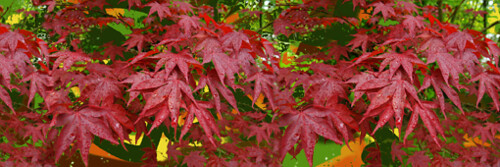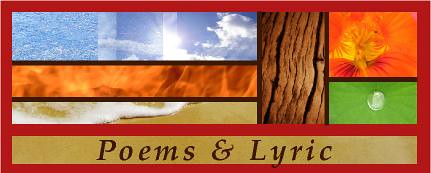
No other poem reflects the moods of the month September – at least in this part of the world - better, I think, than the poem “To Autumn” by John Keats.
In his short life – Keats was born in London in Oktober 1795 and died of tuberculosis (in Rome) in 1820 – he developed into one of England`s leading romantic poets. This ode to autumn is very romantic and at the same time carefully thought through. Descriptions of nature at the beginning (flora) and the end (fauna) give a sort of frame to poem. The beginning decribes what we can see around us right now: the second – deceptive - flowering of plants after summer`s heat, whereas at the end, taking animals into our view, we are reminded of the fact that this is no longer summer. Swallows gather, lambs are fully grown. The middle part is a sudden unexpected speech to autumn itself. Or is it to a beloved person the author sees in the distance?
What I also like a lot is the self assured summerly beginning of the first verse, while the second and third begin with questions –signs of change in confidence and .... “Stimmung” which often go along with the setting in of autumn.
“Here lies one whose name was writ on water” is the insciption on Keats` gravestone. With this and other poems he has written down his name for eternity.
To Autumn
Season of mists and mellow fruitfulness,
Close bosom-friend of the maturing sun;
Conspiring with him how to load an bless
With fruit the vines that round the thatch-eves run;
To bend with apples the moos´d cottage-trees,
And fill all fruit with ripeness to the core;
To swell the gourd and plump the hazel shells
With a sweet kernel; to set budding more,
And still more later flowers for the bees,
Until they think warm days will never cease,
For summer has o´erbrimmed their clammy cells.
Who hath not seen thee oft amid thy store?
Sometimes whoever seeks abroad may find
Thee sitting careless on a granary floor,
Thy hair soft-lifted by the winnowing wind;
Or on a half-reap´d furrow sound asleep,
Drows´d with the fume of poppies, while thy hook
Spares the next swath and all its twined flowers;
And somtimes like a gleaner thou dost keep
Steady thy laden head across a brook;
Or by a cyder-press, with patient look,
Thou watchest the last oozings hours by hours.
III
Where are the songs of spring? Ay, where are they?
Think not of them, thou hast thy music, too,-
While barred clouds bloom the soft- dying day,
And touch the stubble-plains with rosy hue;
Then in a wailful choir the small gnats mourn
Among the river swallows, borne aloft
Or sinking as the light wind lives or dies;
And full-grown lambs loud bleat from hilly bourn;
Hedge-crickets sind; and now with treble soft
The red-breast whistles from a garden-croft:
And gathering swallows twitter in the skies.
by John Keats


0 Comments:
Post a Comment
<< Home